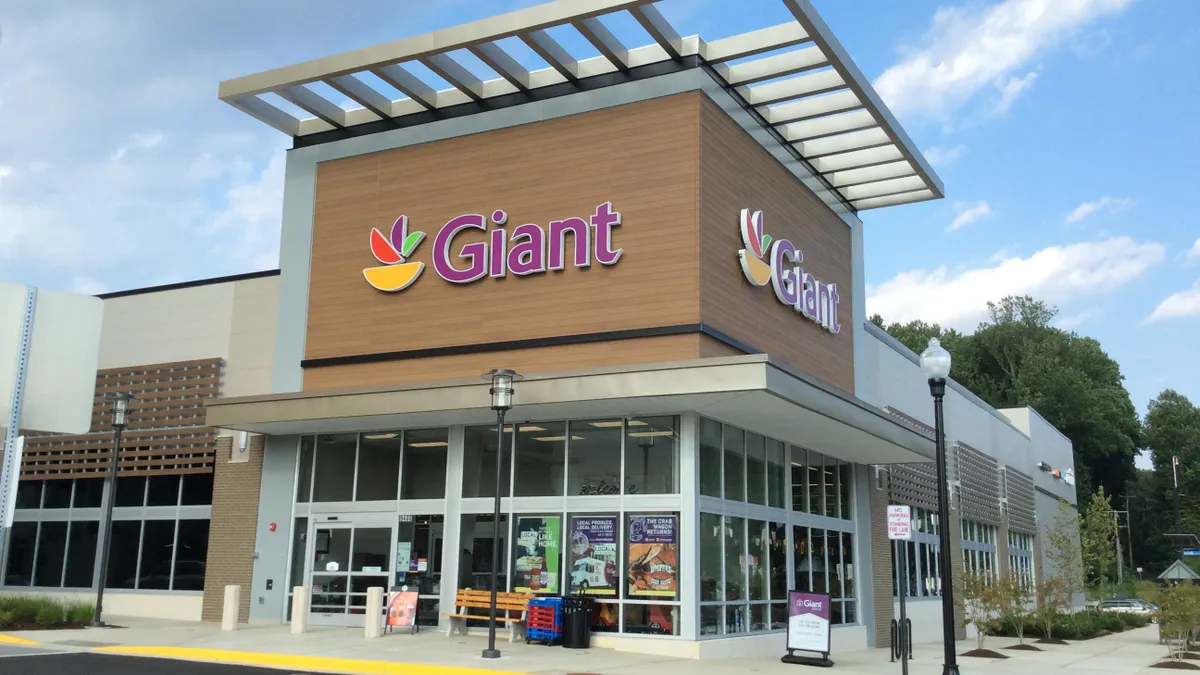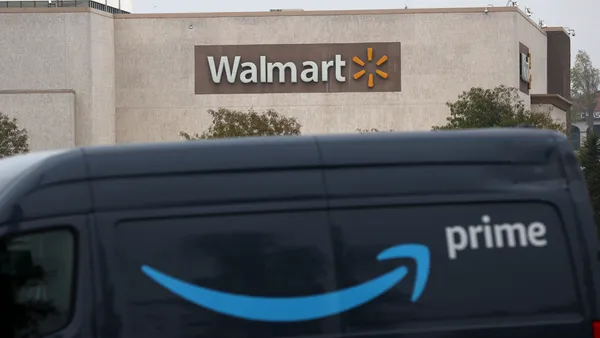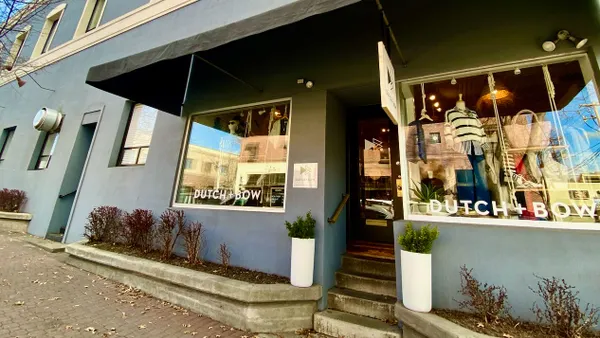Dive Brief:
- More than 85% of Ahold Delhaize's U.S. supply chain will be company-controlled by the end of 2022, the grocer announced on Wednesday.
- ADUSA Supply Chain, the Netherlands-based retailer’s U.S. distribution arm, has transitioned two procurement facilities in Freetown, Massachusetts, over to its network so far this year and plans to make four additional facilities self-managed by the end of the year. Next year, ADUSA will add five distribution centers to the network, including two fully automated frozen facilities.
- Ahold Delhaize says its transition to self-distribution will give it more control over costs, speed up distribution and better equip it to meet e-commerce demand.
Dive Insight:
When it announced its $480 million self-distribution plan in late 2019, Ahold Delhaize set a goal of fully owning its U.S. supply chain by the end of 2023. The company now says it will control the vast majority of that network a year ahead of the deadline.
The speedy transition will help the company shave costs and get products on shelves faster, executives have noted. It also helps the company better fulfill the omnichannel demand that's leaped ahead of schedule due to the pandemic.
"This is one of the largest supply chain transformations ever undertaken in our industry," said Chris Lewis, president of ADUSA Supply Chain.
Natalie Knight, Ahold Delhaize’s chief financial officer, said during the company’s earnings call in May that 65% of its distribution network will be company-controlled by the end of this year, noting that the shift helps it manage online demand as well as inflation. "At a time where inflation is an issue, it means we have more in our own control," Knight said.
The supply chain transition includes a combination of acquisitions and leases on facilities owned by C&S Wholesale Grocers. Earlier this year, Ahold Delhaize converted two centers in Freetown, Massachusetts. Over the next six months, the grocery conglomerate will add two new facilities to its network, including one in Manchester, Connecticut, that transitions services from two unacquired C&S facilities, and a center in Mauldin, South Carolina, it picked up as part of its acquisition of 62 stores from Southeastern Grocers last summer. It will also convert procurement services at facilities in Jessup, Maryland, and Carlisle, Pennsylvania.
Next year, ADUSA will bring online two fully automated frozen facilities it constructed in partnership with Americold — one in Plainville, Connecticut, that will service its Northeast banners, and another in Mountville, Pennsylvania, that will service Mid-Atlantic stores. It will also incorporate facilities in York, Pennsylvania, and Chester, New York, that it acquired from C&S, along with a leased center in Bethlehem, Pennsylvania.
By the end of 2022, Ahold Delhaize will have a total of 25 network facilities up and running, up from 17 at the beginning of the supply chain transition.
Although self-distribution provides grocers with a high level of control over costs and supplier negotiations, the prevailing trend in recent years has been retailers selling back their distribution centers in order to generate cash, supply chain consultant Marc Wulfraat said in a recent interview. The exceptions include Ahold Delhaize and Dollar General. There are also signs that Amazon is plotting its own grocery distribution network.
In addition to its beefed-up supply network, Ahold Delhaize also said it's deploying technology to enhance its ordering and operations management systems. This includes forecasting and replenishment technology that it began testing with its Food Lion and Hannaford banners in 2018, as well as an integrated transportation management system and workforce management system.















